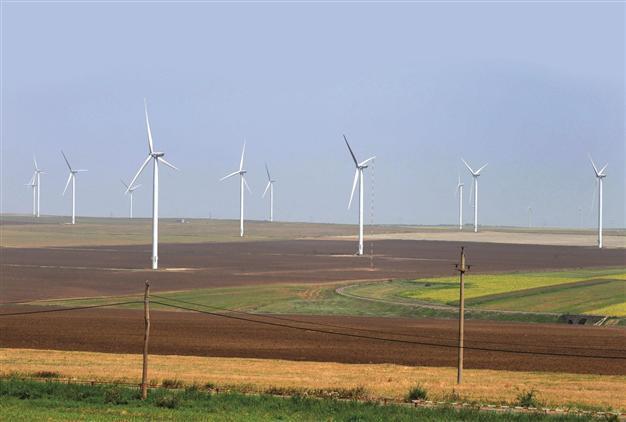EBRD begins 2nd round of energy saving funds
ISTANBUL

The $284.2 million TurSEFF was extended by a
further $265 million this year to meet the growing demand for energy efficiency. AFP photo
The European Bank of Reconstruction (EBRD) is extending its financing program for the energy saving projects of local small and medium enterprises (SMEs) with a $265 million fund to be delivered in partnership with Turkish lenders.
The second round of financing is being provided under the EBRD’s extended Turkish Sustainable Energy Financing Facility (TurSEFF) – a dedicated finance facility aimed at supporting Turkey’s long-term energy strategy.
Launched in July 2010, the $284.2 million TurSEFF was extended by a further $265 million this year to meet the growing demand for energy efficiency and small-scale renewable energy investments among SMEs.
The program that began with cooperation among four banks, Akbank, Denizbank, İŞbank, and Vakıfbank, is now continuing with five partners after Yapı Kredi’s decision to join.
The high-ranking executives of the five banks accompanied Mike Davey, the EBRD’s director for Turkey, during a press meeting yesterday to outline the funding.
Expressing his pleasure at working with the five banks, Davey underlined the importance of the project, saying: “Turkey’s booming economy over the last decade has created an ever-bigger need for energy. As Turkey works to strengthen its energy security and reduce reliance on fossil fuels, the EBRD helps businesses in the country move toward their own energy independence, which allows them to save energy and money, and become more competitive in the long-run.”
Executives of the five banks agreed with Davey on the necessity that Turkey find alternative energy and that the EBRD’s efforts have born fruit.
Difficulties finding enthusiastic customersHowever, when criticized by a SME organization representative that the program had not been sufficiently publicized, Denizbank Executive Vice President Gökhan Sun hinted that the picture was not all positive.
“When we organize meetings about these loan programs, the only question SME owners ask is whether we can provide longer-term credits with lower interest rates,” he said, adding that he thought he could speak on behalf of his colleagues.
“We have thousands of loan customers, but we had to exert all our strength to find 120 SMEs for this program,” he said. Sun said the priority for the SMEs was not to build up their competitive power, by investing in energy saving or renewable energy projects, but rather to seek cheaper financing options for short-term solutions. Still, the program attained energy savings that are equivalent to 234,000 tons of oil every year in the first phase, corresponding to the yearly electricity consumption of almost half a million Turkish homes, and some $147 million in oil imports.
Since 2010, more than 90 percent of TurSEFF funds have been lent to almost 400 SMEs, while more than 50,000 individual households in Turkey have benefited from energy-efficient heating and cooling technology through vendor finance schemes financed under the TurSEFF umbrella, EBRD said in a press release.
